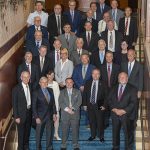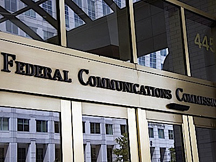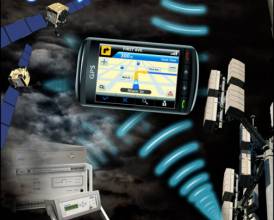Would-be cellular broadband company LightSquared promised a Congressional subcommittee Thursday (June 23, 2011) that it would scale back its proposed wireless system and help pay to find a way to mitigate the network’s adverse effects on users of the Global Positioning System.
Would-be cellular broadband company LightSquared promised a Congressional subcommittee Thursday (June 23, 2011) that it would scale back its proposed wireless system and help pay to find a way to mitigate the network’s adverse effects on users of the Global Positioning System.
Testing over the last several months has determined that LightSquared’s system, as planned, would overload many GPS receivers, rendering them useless for locating users, guiding aircraft, or providing key timing information to help run systems such as the power grid and the Internet. LightSquared says it will deliver its delayed final report and recommendations to the Federal Communications Commission (FCC) on June 29.
Speaking before a joint hearing of the House transportation subcommittees responsible for aviation, marine travel, and the Coast Guard, LightSquared’s executive vice president of regulatory affairs and public policy, Jeffrey Carlisle, said his firm would also agree to permanently use lower power levels of 32dBw or about 1.6 kilowatts on its system of ground stations -— levels considerably lower than the provisionally approved level of 42 dBw.
“We are giving that up and we will seek a modification to our license,” Carlisle said.
That pledge, if executed could help with concerns expressed at the subcommittee hearing by government and commercial GPS witnesses that LightSquared would start with a scaled-back system then later seek to use the power levels and spectrum that threaten GPS usage.
LightSquared must be profitable and it will need to use all that spectrum to achieve that, said Phil Staub, vice president of aviation engineering for Garmin International. “Eventually the whole camel will be in the tent.”
Carlisle did say that, though the firm would deploy using only the lower portion of the 20 MHz of frequencies conditionally approved by the Federal Communications Commission, they wanted to discuss “over several years” ways to use the full range of frequencies. He emphasized that they could not implement any plan until specifically authorized to do so by the FCC.
Though Garmin and others in the hearing said that no technical solution to LightSquared interference was in sight, LightSquared also said it would “coordinate and share the cost of underwriting a workable solution” for the high-precision GPS devices that are still at risk under the revised signal plan that the company was proposing.
That did not convince Rep. Sam Graves, R-Missouri, who said he was “not comfortable with” LightSquared’s plan and would “not support it, whatsoever.”
Speaking to reporters after the hearing, Aviation subcommittee Chairman Tom Petri, R-WI, said he believed “credible concerns have been raised that the FCC gave too broad a grant of use over a portion of the spectrum [for a project that,] if deployed, would endanger the public. They should have consulted more widely.”
Petri, who had expressed concerns during the hearing about LightSquared’s impact on aviation safety and the NextGen air traffic system, said there had already been discussions about the potential GPS interference issue with House Energy and Commerce Committee Chairman Fred Upton, R-Mich. Energy and Commerce has regulatory authority over the FCC.
“We will” be talking with Upton again, Petri told reporters.
Though LightSquared was the subject of the hearing, it was not the only organization that got some sharp questions.
Rep. Frank LoBiondo, R-N.J., chairman of the Subcommittee on Coast Guard and Maritime Transportation asked why the Department of Homeland Security had not made “one comment” on the LightSquared issue. “Why has DHS, the department responsible for maritime and security still not voiced an opinion on this matter?”
We have been carrying “a lot of water” on this issue,” responded Rear Admiral Robert E. Day Jr., DHS’s assistant commandant for command, control, communications, computers and information technology, who pledged to get back to the chairman on the question. He also told the members that the DHS report on whether a need exists for a backup to GPS — due April 10 to Congress — was still being reviewed
For selected excerpts from the subcommittee hearing, click here.






